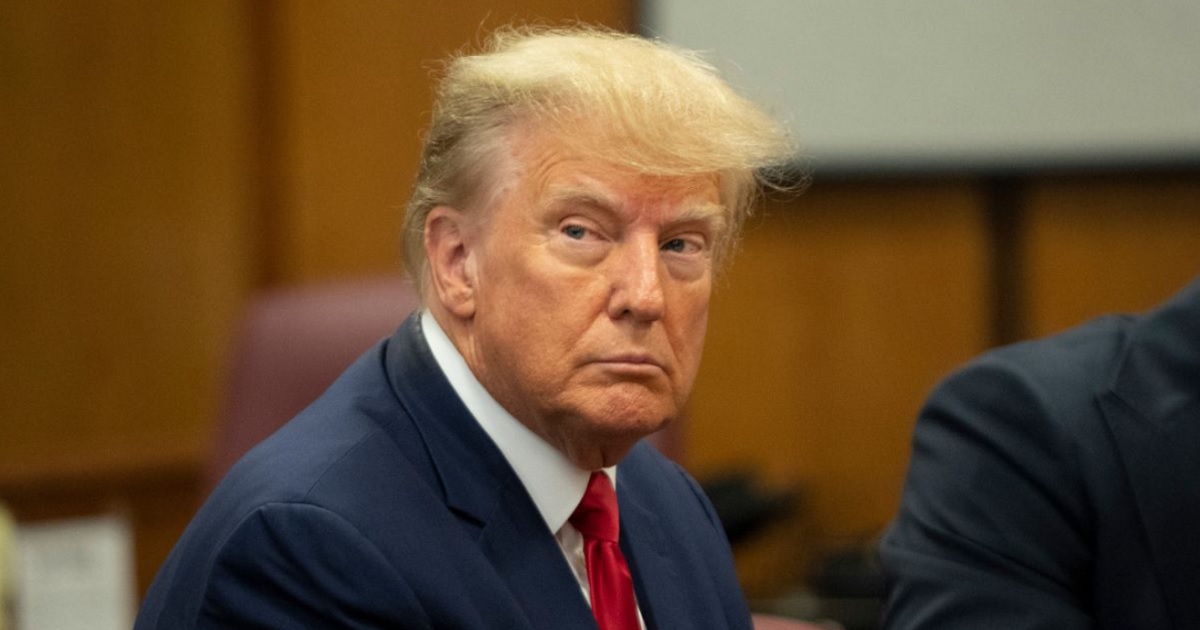Wedding Dress Debate Sparks Controversy Between Stylist And Celebrity Couple
A stylist's critical commentary on Olivia Culpo's wedding dress choice has ignited a public debate surrounding modesty and fashion in bridal wear.
Kennedy Bingham's critique of Olivia Culpo's conservative wedding gown sparked controversy, leading to a defense from Culpo's husband, Christian McCaffrey, The Western Journal reported.
Olivia Culpo, a former Miss USA and Miss Universe, chose a traditional and modest style for her wedding to NFL player Christian McCaffrey on June 29. Her choice was encapsulated in a "long-sleeve crepe crew neck ball gown with a voluminous skirt and button-lined back," as described by Vogue, topped with a grand 16-foot lace veil.
Culpo expressed that her selection was intended to honor the sanctity of marriage, explaining that she didn't want her dress to "exude sex in any way, shape, or form." She aimed for her gown to represent something "timeless, covered, and elegant," reflecting the solemnity of her lifelong commitment.
However, stylist Kennedy Bingham took to Instagram to voice her dissatisfaction with Culpo's choice, labeling the dress conservative and out of touch with contemporary bridal fashion. Bingham, known for advocating unique bridal expressions, argued that Culpl's gown promoted a narrow, conservative vision of what brides should wear.
Fashion Critique Turns Personal and Public
Bingham suggested that while the gown was aesthetically pleasing, its purportedly promoted values left a "bitter aftertaste." She argued it pushed an outdated, conservative agenda, which she felt imposed limitations on personal expression in bridal wear.
In response to Bingham's critique, McCaffrey took to social media, supporting his wife's fashion choices and criticizing Bingham's comments as inappropriate. McCaffrey expressed a hope that Bingham would find "joy and peace in the world," echoing the satisfaction he believed his wife found in her choices.
Bingham, not retreating from her position, accused Culpo of harboring "internalized misogyny" due to her dress choice and labeled McCaffrey's defensive comments as patriarchal. She further questioned the criticism surrounding her views, especially concerning non-Christian modesty, which she felt was more widely accepted.
The Cultural Implications of A Bridal Gown
This interaction raises questions about the broader societal expectations for wedding attire and the roles of tradition and personal expression in marital ceremonies. Bingham's comments reflect a wider debate on how women present themselves during significant life events and whether these choices reflect personal desires or societal pressures.
McCaffrey's defense highlights a personal belief in respecting individual choices, especially within meaningful personal ceremonies such as weddings. He viewed his wife's decision as expressing her values and perception of beauty, which he argued deserves respect without public criticism.
Culpo, in defending her choice, framed the wedding dress not just as a personal preference but as a symbol of the union and resonance with her partner's perceptions. She felt her gown mirrored the qualities her husband cherished most – timelessness and elegance.
Unpacking the Layers of Bridal Dress Choice
Bingham continued to assert her stance, explaining that she was not merely critiquing the individual choice of a wedding dress but was challenging the broader narratives attached to such decisions.
She argued that advocating for personal expression required critiquing traditional options, which she believed often carried broader implications about gender roles and expectations.
McCaffrey and Culpo responded to the critique by emphasizing the personal and emotional basis for their choices, emphasizing that wedding attire reflects individual and shared values rather than just making a fashion statement.
As the debate unfolded publicly, it showcased differing views on fashion and modesty and revealed layers of personal beliefs, cultural expectations, and societal norms surrounding weddings and marriage.
Bridging Fashion with Cultural Expression and Personal Beliefs
The controversy delves into deeper issues of how fashion intersects with cultural expression and individual identity. It illustrates the complexities inherent in personal choices, especially in significant life events like weddings, where public scrutiny and cultural expectations often weigh heavily on personal tastes.
The discourse further underscores the challenges and pressures faced by individuals, particularly public figures, in aligning their personal choices with public expectations and cultural trends. It prompts reflection on the balance between tradition and modernity, personal preference, and societal influence in shaping our decisions.
In conclusion, Bingham's critique of Culpo's wedding dress and McCaffay's subsequent defense not only reflect a disagreement over fashion but also spark a complex dialogue about values, identity, and the symbolism embedded in the attire worn during significant occasions.




